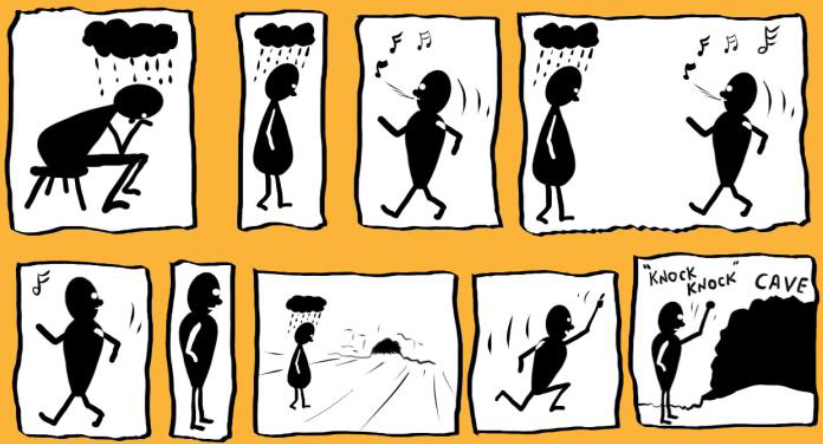I was speaking with a bloke not long ago, Joe, who was feeling really frustrated when trying to help a mate who was avoiding Joe’s attempts at support and refusing to seek help, even though he was obviously in some emotional distress. As is often the case Joe felt powerless in this situation and asked how he might better approach things.
So, what do we do when someone close to us, often a friend or family member, won’t seek help? How do we manage the sense of obligation we may feel or the emotions that come with this?
First and foremost, we must remind ourselves that we do not carry the responsibility for other people’s health and wellbeing, they do! However, in the above situation it is important to try and understand the reasons why some people are less likely to seek help when it is needed. We need to recognise that often when people are in the middle of a tough situation, simply making a decision to admit something is wrong can be a difficult and daunting thing. It can take time for some people to become comfortable enough with their situation to then contemplate the idea of accessing help. For others, negotiating feelings of embarrassment and shame can be quite overwhelming.
I take my hat off to Joe because, like him, we all need to recognise our role as primary carers, that is, everyday people in the community actively supporting and looking out for our mates.
Whilst our intentions can be coming from a good place, trying to get someone to change or seek help can put more of a strain on your friendship/relationship. Alternatively, simply avoiding the issue can foster stronger feelings of isolation and possibly result in the person becoming even more resistant. This can prove difficult when the time comes, and they are ready to reach out but may no longer feel comfortable with the idea of approaching you.
As difficult as these situations can seem, it is important to be there for people who are going through a tough time. You can do this just by letting them know you are available to listen when they need it and help when they do decide to reach out. In the meantime, you could take the opportunity to do a bit of research into what specialised local support options might be available, if required, such as a counsellor, financial/legal support or the GP, so you can be prepared and direct them when they do reach out. We also need to remind ourselves that the ability to listen effectively is one of the most important skills we can possess. Being a good listener can have a big impact on improving our relationships and helping others.
At the end of the day, it’s also important to look after yourself. Setting clear boundaries is healthy and is all about understanding our limits. If you are starting to feel overwhelmed, talking to someone yourself can provide a good outlet and perhaps some insights into ways to manage the situation.
Most of the time, giving someone the space they need to arrive at seeking help is a good thing. However, if you do have concerns that someone is at imminent risk or danger to themselves or others, it is important that you act on this and seek professional help immediately. In these circumstances you may be worried about going against a person’s wishes, but realistically most of us would rather deal with an angry response than a situation where the person we care about is seriously hurt or in trouble.
By The Regional Men’s Health Initiative




Comments are closed.